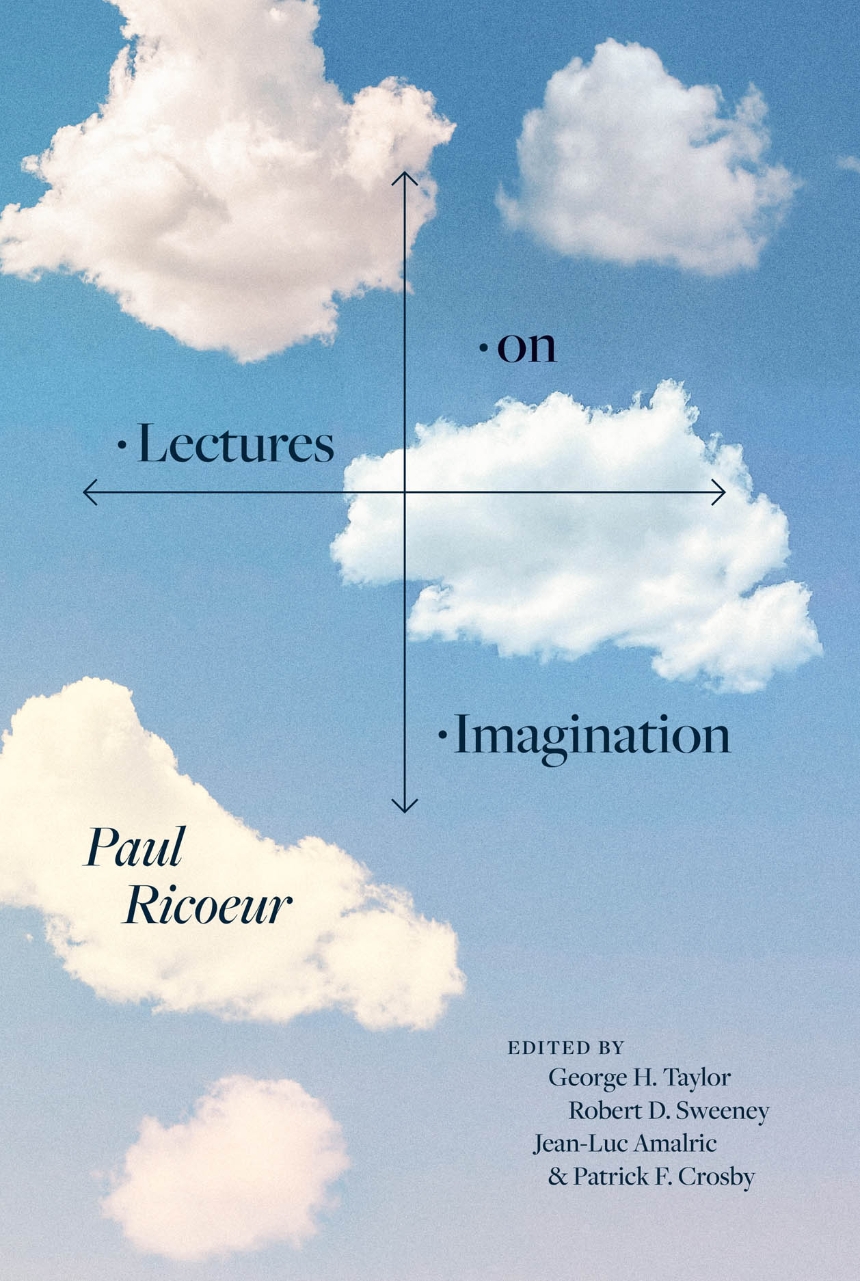Lectures on Imagination
Ricoeur’s theory of productive imagination in previously unpublished lectures.
The eminent philosopher Paul Ricoeur was devoted to the imagination. These previously unpublished lectures offer Ricoeur’s most significant and sustained reflections on creativity as he builds a new theory of imagination through close examination, moving from Aristotle, Pascal, Spinoza, Hume, and Kant to Ryle, Price, Wittgenstein, Husserl, and Sartre. These thinkers, he contends, underestimate humanity’s creative capacity. While the Western tradition generally views imagination as derived from the reproductive example of the image, Ricoeur develops a theory about the mind’s power to produce new realities. Modeled most clearly in fiction, this productive imagination, Ricoeur argues, is available across conceptual domains. His theory provocatively suggests that we are not constrained by existing political, social, and scientific structures. Rather, our imaginations have the power to break through our conceptual horizons and remake the world.
The eminent philosopher Paul Ricoeur was devoted to the imagination. These previously unpublished lectures offer Ricoeur’s most significant and sustained reflections on creativity as he builds a new theory of imagination through close examination, moving from Aristotle, Pascal, Spinoza, Hume, and Kant to Ryle, Price, Wittgenstein, Husserl, and Sartre. These thinkers, he contends, underestimate humanity’s creative capacity. While the Western tradition generally views imagination as derived from the reproductive example of the image, Ricoeur develops a theory about the mind’s power to produce new realities. Modeled most clearly in fiction, this productive imagination, Ricoeur argues, is available across conceptual domains. His theory provocatively suggests that we are not constrained by existing political, social, and scientific structures. Rather, our imaginations have the power to break through our conceptual horizons and remake the world.
400 pages | 1 tables | 6 x 9 | © 2024
Philosophy: General Philosophy, History and Classic Works, Philosophy of Mind
Reviews
Table of Contents
Editor’s Acknowledgments by George H. Taylor
Editor’s Introduction by George H. Taylor
1 Introductory Lecture
Part One: Classical Readings
2 Aristotle
3 Pascal and Spinoza
4 Hume
5 Kant: Critique of Pure Reason
6 Kant: Critique of Judgment
Part Two: Modern Readings
7 Ryle
8 Ryle (2) and Price
9 Wittgenstein
10 Husserl: Logical Investigations
11 Husserl: Ideas
12 Sartre (1)
13 Sartre (2)
14. Sartre (3)
Part Three: Imagination as Fiction
15 Fiction (1): Introduction
16 Fiction (2): Metaphor
17 Fiction (3): Painting
18 Fiction (4): Models
19 Fiction (5): Poetic Language
Notes
Bibliography
Index
Editor’s Introduction by George H. Taylor
1 Introductory Lecture
Part One: Classical Readings
2 Aristotle
3 Pascal and Spinoza
4 Hume
5 Kant: Critique of Pure Reason
6 Kant: Critique of Judgment
Part Two: Modern Readings
7 Ryle
8 Ryle (2) and Price
9 Wittgenstein
10 Husserl: Logical Investigations
11 Husserl: Ideas
12 Sartre (1)
13 Sartre (2)
14. Sartre (3)
Part Three: Imagination as Fiction
15 Fiction (1): Introduction
16 Fiction (2): Metaphor
17 Fiction (3): Painting
18 Fiction (4): Models
19 Fiction (5): Poetic Language
Notes
Bibliography
Index
